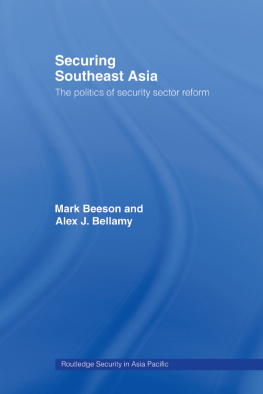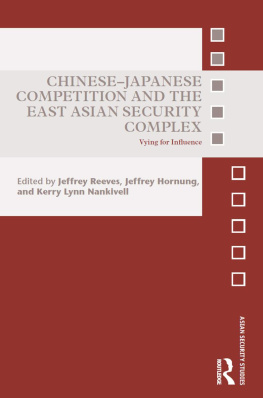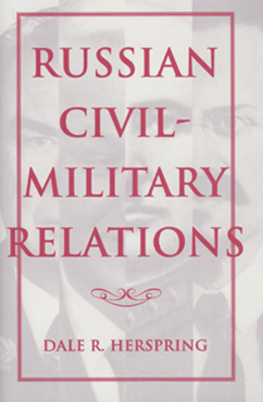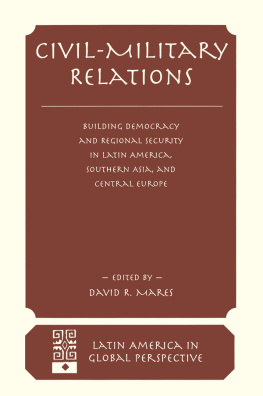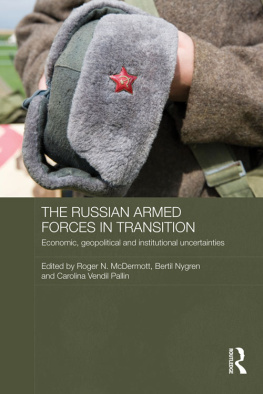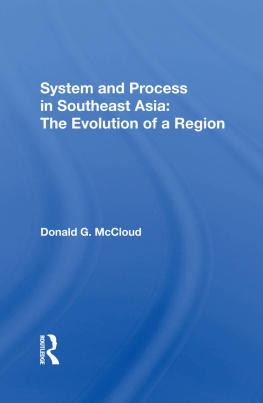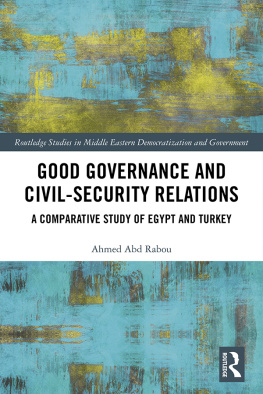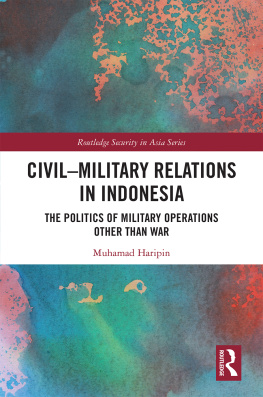Securing Southeast Asia
This book analyses civilmilitary relations in Southeast Asia in the wake of the largely unexpected September 2006 coup in Thailand. It explores the impact and utility of the security sector reform agenda on the region and assesses whether it is likely to help make Southeast Asia more stable and less prone to similar military interventions. Four of Southeast Asia's most important countries are examined: Malaysia, the Philippines, Indonesia and Thailand. This book provides an overview and update of developments in Southeast Asia's most important militaries, as well as a detailed analysis of their relationship with national governments. It also considers Southeast Asia's place in the war on terror and the impact this may have on the region as a whole. A key feature of this study is the detailed exploration of the place of regional security sectors in their unique, historically determined national contexts. Consequently, this book offers a rare theoretically informed comparative study of the promise and pitfalls of security sector reform in the strategically important Southeast Asian region.
Mark Beeson is Professor of International Politics at the University of Birmingham. His research is centred on the politics, economics and security of East Asia. His latest book is Regionalism, Globalization and East Asia: Politics, Security and Economic Development (Palgrave, 2007).
Alex J. Bellamy is Professor of International Relations at the University of Queensland. His research is centred on the normative dimensions of military power. His latest book is Just Wars: From Cicero to Iraq (Polity, 2006).
Routledge Security in Asia Pacific series
Series Editors
Leszek Buszynski
International University of Japan,
and
William Tow
Australian National University
Security issues have become more prominent in the Asia Pacific region because of the presence of global players, rising great powers and confident middle powers, which intersect in complicated ways. This series puts forward important new work on key security issues in the region. It embraces the roles of the major actors, their defence policies and postures and their security interaction over the key issues of the region. It includes coverage of the United States, China, Japan, Russia, the Koreas, as well as the middle powers of ASEAN and South Asia. It also covers issues relating to environmental and economic security as well as transnational actors and regional groupings.
1 Bush and Asia
America's evolving relations with East Asia
Edited by Mark Beeson
2 Japan, Australia and Asia-Pacific Security
Edited by Brad Williams and Andrew Newman
3 Regional Cooperation and Its Enemies in Northeast Asia
The impact of domestic forces
Edited by Edward Friedman and Sung Chull Kim
4 Energy Security in Asia
Edited by Michael Wesley
5 Australia as an Asia Pacific Regional Power
Friendships in flux?
Edited by Brendan Taylor
6 Securing Southeast Asia
The politics of security sector reform
Mark Beeson and Alex J. Bellamy
Securing Southeast Asia
The politics of security sector reform
Mark Beeson and
Alex J. Bellamy
First published 2008
by Routledge
2 Park Square, Milton Park, Abingdon, Oxon OX14 4RN
Simultaneously published in the USA and Canada
by Routledge
270 Madison Ave, New York, NY 10016
Routledge is an imprint of the Taylor & Francis Group, an Informa business
Transferred to Digital Printing 2009
2008 Mark Beeson and Alex J. Bellamy
Typeset in Times New Roman by
Newgen Imaging Systems (P) Ltd, Chennai, India
All rights reserved. No part of this book may be reprinted or reproduced or utilised in any form or by any electronic, mechanical, or other means, now known or hereafter invented, including photocopying and recording, or in any information storage or retrieval system, without permission in writing from the publishers.
British Library Cataloguing in Publication Data
A catalogue record for this book is available from the British Library
Library of Congress Cataloging in Publication Data
Beeson, Mark.
Securing Southeast Asia : the politics of security sector reform /
Mark Beeson & Alex J. Bellamy.
p. cm (Routledge security in Asia Pacific series ; 6)
Includes bibliographical references and index.
1. Civil-military relations Southeast Asia. 2. Southeast Asia Politics and government. I. Bellamy, Alex J., 1975 II. Title.
DS525.7.B44 2007
355.033059dc22
2007012127
ISBN10: 0415416191 (hbk)
ISBN10: 0415491746 (pbk)
ISBN10: 0203934881 (ebk)
ISBN13: 9780415416191(hbk)
ISBN13: 9780415491747(pbk)
ISBN13: 9780203934883(ebk)
Contents
Acknowledgements
A number of people have helped us in the preparation of this book, and we would like to acknowledge their contribution. We are, of course, solely responsible for any errors of fact or interpretation in what follows, but we would like to thank Michael Connors, Bob Elson, Jane Hutchison, Francis Loh, Marcus Mietzner and Kevin Smith, for reading and commenting on parts of the book.
In addition, we would like to thank and acknowledge the many people we interviewed in connection with this book, some of whom wish to remain confidential. Of those we can mention, we would like to thank, K.S Balakrishnan, Ken Brownrigg, Suchit Bunbongkarn, Chayachoke Chulasiriwong, Sunait Chutintaranond, Richard Ellis, Chris Forbes, David Garnock, J. Kristiadi, Chandrun Jeshurun, Andi Mallarangeng, Ana Marie Pamintuan, Arsa Sarasin, Stuart Jarvis, Mohamed Jawhar bin Hassan, Keiran Miller, Makmier Kelial, Steve McLean, K.S. Nathan, General Niyom, Sukhumbhand Paribatra, Edy Prasetyono, Ariston Delos Reyes, Johan Saravanamuttu, Philips J. Vermonte, Andi Widjajanto, Craig White and Zakaria Ahmad.
Supachai Watanangura and Chawannat Limtaskinkul offered generous assistance during the fieldwork in Thailand.
We would also like to acknowledge the invaluable research assistance of Bryn Hughes and David Hundt. Thanks to Peter Sowden at Routledge for his encouragement and assistance in bringing this project about. Finally, we wish to acknowledge the support provided by the Australian Research Council in funding this research, without which it would not have been possible.
Introduction
Southeast Asia is something of an anomaly. Superficially, since the end of the Second World War it has enjoyed many of the conditions often thought necessary for capitalist democracy and stable government. In practice, however, governance in the region has often been characterised by authoritarianism and a pronounced tendency for the security sector to play a dominant role in political and economic life. This was exemplified most clearly by the 2006 military coup in Thailand and by a series of apparent coup attempts in the Philippines. According to one scholar, the region's states have chosen cohesion over consensus (Janowitz 1981: 16).
For much of their history, security sectors in Southeast Asia have tended to play an active role in the political and economic life of the country, defending and sometimes promoting authoritarianism, and concentrating on securing particular regimes rather than the state itself or its citizens. Traditionally, a common refrain for observers of security sector politics in Southeast Asia has been to note the lingering military-sponsored authoritarianism that has persisted long after the military's so-called return to barracks (e.g. Olsen and Jurika 1986). Indeed, it is not uncontroversial to argue that since 1945 Southeast Asians have been more threatened by their own security forces than both those of other states (see Burke and McDonald 2007). Recently, however, there has been evidence of an important shift in the way that the region's security sectors are governed, the values they subscribe to and the roles they fulfil. In what has become a landmark study, Alagappa (2001) concluded that profound changes were afoot. In Indonesia and Thailand he observed a discernible shift towards the old professionalism model of civilmilitary relations.

